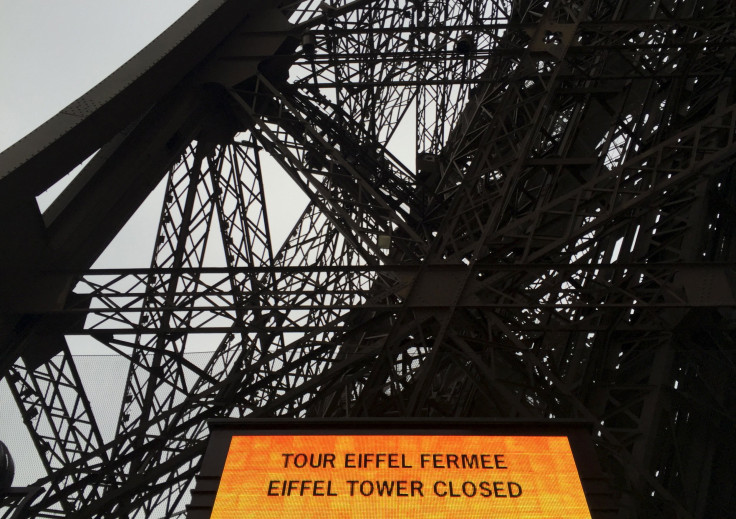Paris Attacks: Eiffel Tower, Euro Disney Parks And Public Areas Remain Closed, While Some City Transportation Lines Flow

After a wave of terrorist attacks that swept through Paris Friday night, claiming the lives of more than 100 people, many parts of the city remained shut down Saturday as French President Francois Hollande blamed the Islamic State group for committing an "act of war."
Hollande also declared a state of emergency and tightened border controls. In Paris, the city government announced a wide array of closures of public facilities Saturday, including schools, museums, libraries and gyms. The list also extends to food markets, conservatories, and artists' studios.
ABC News reported that these public areas will be closed indefinitely, and that an additional 1,500 soldiers would be guarding Parliament buildings, along with religious and tourist sites.
Many travel routes remained open Saturday. The state-owned public transportation outfit, RATP Group, said Saturday that bus, metro, tram and the rapid-transit RER lines were operating normally, with all stations open.
Airports also remained open, but Paris airport authorities advised travelers to expect delays as they strengthened controls.
The Eiffel Tower will remain closed indefinitely, a representative of the attraction's management company told Agence France-Presse. Euro Disney theme parks such as Disneyland Paris were closed for safety reasons, RATP said. It reiterated that the neighborhoods where the attacks took place -- the 10th and 11th arrondissements, or districts -- remained inaccessible to the public.
The website of the U.S. Embassy in Paris continued to warn American citizens and personnel Saturday to "shelter in place" and to "heed local authorities and maintain security awareness."
© Copyright IBTimes 2024. All rights reserved.



















